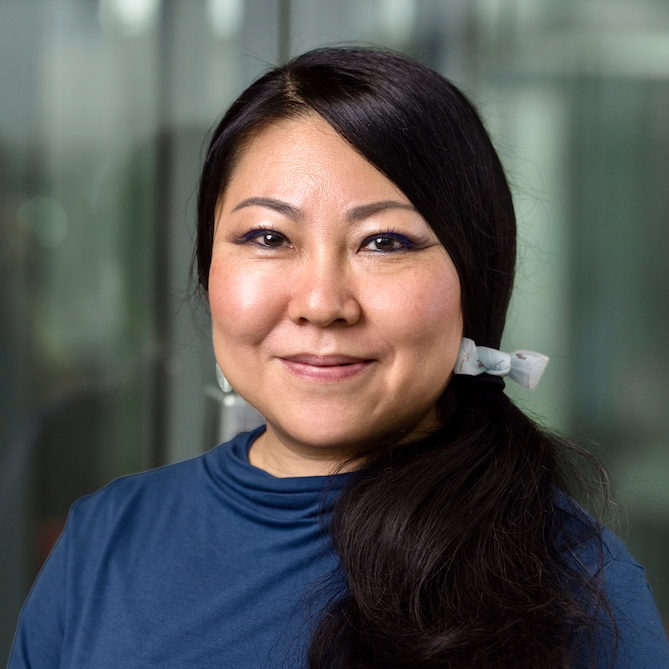Forschungsbereich
Ich habe ein breites Forschungsinteresse an der ethischen Bewertung und verantwortungsvollen Steuerung aufstrebender und zukünftiger Technologien, wie KI, Robotik und autonome Systeme. Durch empirische Studien zu diesen transformativen Technologien möchte ich mich mit den ethischen, sozialen, rechtlichen und regulatorischen Herausforderungen befassen, die neue und komplexe Technologien für die Gesellschaft darstellen, reaktionsfähige analytische Ansätze für das Verständnis und die Bewertung dieser Technologien erforschen und praktische Governance-Tools für die Gestaltung, Entwicklung und Nutzung dieser Technologien entwickeln. In konzeptioneller Hinsicht bin ich daran interessiert, philosophische Begriffe wie Identität, Handlungsfähigkeit, Autonomie, Verantwortung, Gerechtigkeit und das gute Leben zu erforschen. Methodisch möchte ich mich auf Erkenntnisse stützen, die ich durch transdisziplinäre Forschung in partizipatorischen und ko-kreativen Prozessen gewonnen habe.
Akademische Laufbahn
Ich bin Ethikerin und Politikwissenschaftlerin und lebe seit 2010 in der Schweiz. Ich habe an der Universität Zürich in Biomedizinischer Ethik und Recht promoviert und zwei Master-Abschlüsse in Angewandter Ethik und Politikwissenschaft in Schweden, Norwegen und den Niederlanden erworben. Zwischen meinen akademischen Tätigkeiten leitete ich Projekte zur Entwicklung von Ethikrichtlinien für internationale Organisationen aus dem Regierungs-, Industrie- und NGO-Sektor. Als starke Befürworterin von Bottom-up-Kräften für den sozialen Wandel setze ich mich dafür ein, die Kluft zwischen Wissenschaft und Gesellschaft zu überbrücken, und engagiere mich aktiv in einflussreichen nichtakademischen Institutionen wie dem Weltwirtschaftsforum, dem IEEE und der Schweizerischen Akademie der Technischen Wissenschaften.
Projekte
Ich arbeite zurzeit an folgenden Projekte:
- BRIDGE «The BRIDGE Lab: Bridging the Wisdom Gap», finanziert von der Digitalisierungsinitiative der Zürcher Hochschulen (DIZH) für 2022-2026. Das Lab bietet eine kollaborative Plattform als strukturelles Gefäss zur Förderung von Innovationen durch sein «Dienstleistungsportfolio», das Forschung, Bildung, Beratung und Partnerschaftsaktivitäten umfasst. Durch die Bereitstellung von Dienstleistungen, die auf die Interessengruppen ausgerichtet, handlungsorientiert und ergebnisorientiert sind, möchte das Labor die Innovationsgemeinschaft mit zukunftsweisenden politischen Szenarien, Governance-Modellen und strategiebildenden Praktiken in der Schweiz und darüber hinaus informieren.
- Apéro Digital «The Apéro Digital Series», finanziert von der Digitalisierungsinitiative der Zürcher Hochschulen(DIZH) für 2024-2025. Dieses Outreach-Projekt zielt darauf ab, die gemeinsame Schaffung reflexiver Umgebungen zu erleichtern, um das Verständnis gesellschaftlicher Veränderungen im Zusammenhang mit der Digitalisierung zu fördern. Dabei werden Techniken der Zukunftsforschung, des Storytellings und des Erfahrungsaustauschs kombiniert, was zu greifbaren Artefakten führt, die von allen Beteiligten mitproduziert werden.
- Apéro Philo «The Apéro Philo Series», finanziert von der UZH Digital Society Initiative (DSI) für 2023-2025. Dieses Engagement-Projekt besteht aus einer Reihe von öffentlichen Veranstaltungen, die UZH- und ZHAW-Forschende, -Studierende, -Wissenschaftler:innen und im Idealfall auch nicht-akademische gesellschaftliche Akteure in einen interdisziplinären Austausch über Ethik, Technologie und Digitalisierung – in einem freundlichen und inklusiven Umfeld – einbeziehen.
Zu den abgeschlossenen Projekten aus meiner bisherigen Forschung und Lehre gehören:
- HOPE «Hubs of Open and Participatory Education for Digitally Connected Learning», finanziert durch den UZH Teaching Fund (ULF) für 2023-2024. Dieses Bildungsprojekt zielt darauf ab, gemeinsam digital vernetzte Lernzentren für Lernende aus infrastrukturschwachen Gebieten zu schaffen, um Zugang zu offenen Bildungsressourcen zu erhalten und nachhaltige und erschwingliche Lösungen für soziale Innovationen in schwierigen Kontexten durch interdisziplinäre und interkulturelle Lernmöglichkeiten zu entwickeln.
- SKY «The Sky Is the Limit? Ethical Acceptability of Autonomous Systems in Switzerland», finanziert durch den Fonds zur Förderung des wissenschaftlichen Nachwuchses (FAN) der UZH für die Jahre 2023-2024. Dieses Forschungsprojekt zielte darauf ab, Analysen über die ethische Akzeptanz von hochwirksamen Technologien wie autonomen Systemen zu erstellen und praktische Governance-Instrumente für politische Entscheidungsträger und die Öffentlichkeit zu entwickeln, um ethisch fundierte Transformationen in Richtung Nachhaltigkeit zu erreichen.
- SADUS «Societal Acceptance of Drones in Urban Switzerland», finanziert durch den UZH Global Strategy and Partnership Fund für 2022-2023. Dieses Forschungsprojekt zielte darauf ab, evidenzbasiertes Wissen über die ethischen und sozialen Implikationen von Hochtechnologie zu entwickeln, und zwar aus der Perspektive der Annahme und Anpassung autonomer Systeme im urbanen Schweizer Kontext.
- E-HUD «The Ethics Assessment Tool for the Humanitarian Use of Drones», finanziert von der Digitalisierungsinitiative der Zürcher Hochschulen (DIZH) für 2022-2023. Dieses Innovationsprojekt zielte auf die Operationalisierung eines ethischen Bewertungsrahmens für den Einsatz von Drohnen im humanitären und entwicklungspolitischen Umfeld ab und ist ein Spin-off eines früheren Forschungsprojekts FEAHD.
- EVSET «Enhancing Value Sensitivities in Emerging Technologies», finanziert durch den UZH Teaching Fund (ULF) für 2021-2022. Dieser interdisziplinäre Kurs zielte darauf ab, das Konzept der «wertsensitiven Innovation» aus interdisziplinärer Perspektive einzuführen und junge Wissenschaftler:innen und künftige Innovator:innen mit einer wertebasierten Innovationsmentalität und einer Reihe praktischer operativer Werkzeuge auszustatten.
- Tichajil «The «Tichajil» Drone in Guatemala», finanziert durch das Staatssekretariat für Bildung, Forschung und Innovation (SBFI) für die Jahre 2020-2022. Diese Feldstudie in einem abgelegenen Hochlandgebiet Guatemalas zielte darauf ab, ein empirisch fundiertes Verständnis darüber zu erlangen, wie der Ansatz des «wertsensitiven Designs» den Ausdruck menschlicher und gesellschaftlicher Werte bei der Entwicklung neuer Technologien erleichtern kann.
- FEAHD «Value Sensitive Innovation: Framework for the Ethics Assessment of Humanitarian Drones», finanziert durch den Schweizerischen Nationalfonds (SNF) und das Swiss Network for International Studies (SNIS) für die Jahre 2018-2021. Mit diesem Forschungsprojekt wurde untersucht, wie ethische Werte in den humanitären Einsatz von Drohnen durch empirische Studien und die Zusammenarbeit verschiedener Interessengruppen integriert werden können.
